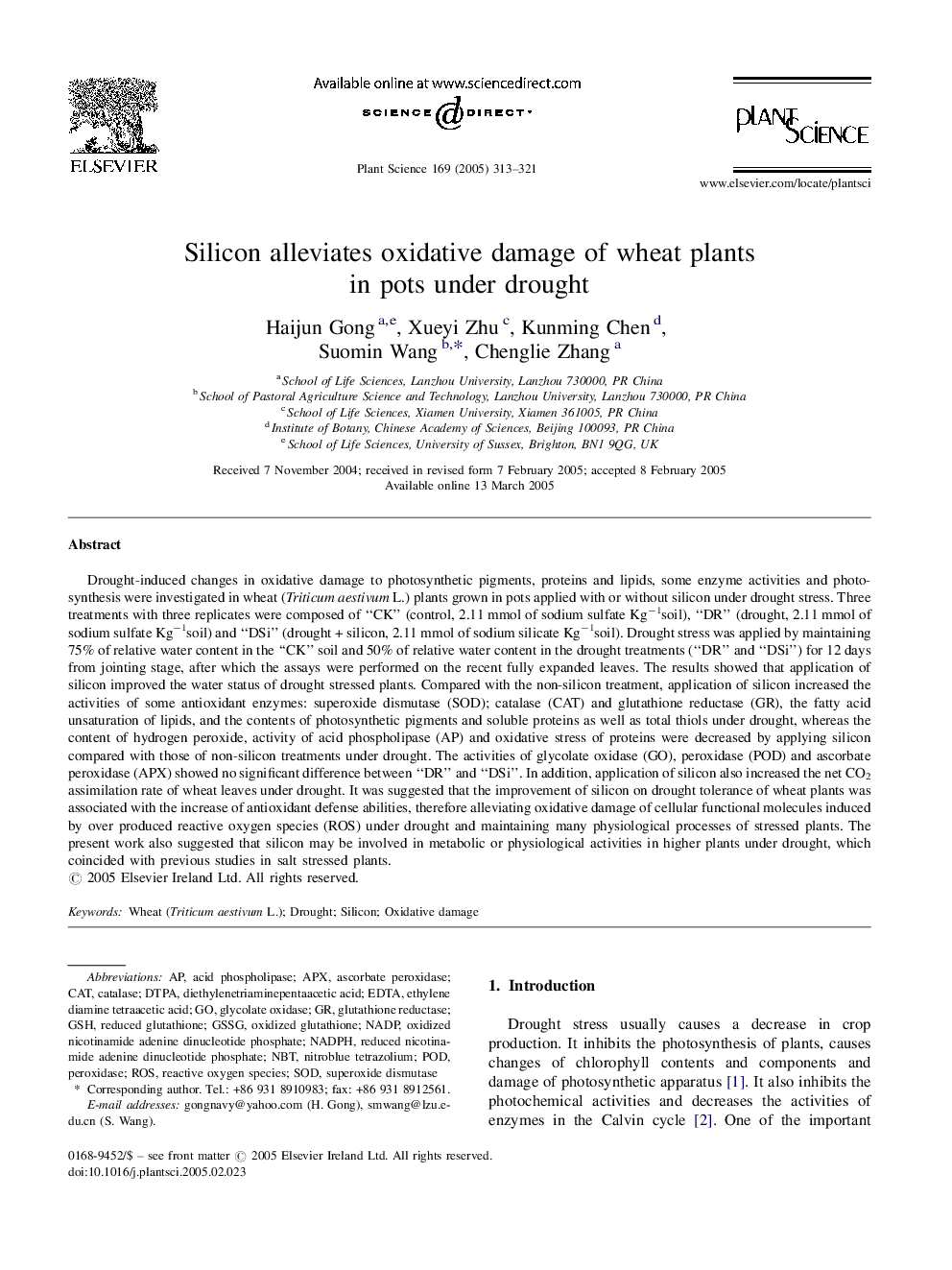| Article ID | Journal | Published Year | Pages | File Type |
|---|---|---|---|---|
| 10840753 | Plant Science | 2005 | 9 Pages |
Abstract
Drought-induced changes in oxidative damage to photosynthetic pigments, proteins and lipids, some enzyme activities and photosynthesis were investigated in wheat (Triticum aestivum L.) plants grown in pots applied with or without silicon under drought stress. Three treatments with three replicates were composed of “CK” (control, 2.11 mmol of sodium sulfate Kgâ1soil), “DR” (drought, 2.11 mmol of sodium sulfate Kgâ1soil) and “DSi” (drought + silicon, 2.11 mmol of sodium silicate Kgâ1soil). Drought stress was applied by maintaining 75% of relative water content in the “CK” soil and 50% of relative water content in the drought treatments (“DR” and “DSi”) for 12 days from jointing stage, after which the assays were performed on the recent fully expanded leaves. The results showed that application of silicon improved the water status of drought stressed plants. Compared with the non-silicon treatment, application of silicon increased the activities of some antioxidant enzymes: superoxide dismutase (SOD); catalase (CAT) and glutathione reductase (GR), the fatty acid unsaturation of lipids, and the contents of photosynthetic pigments and soluble proteins as well as total thiols under drought, whereas the content of hydrogen peroxide, activity of acid phospholipase (AP) and oxidative stress of proteins were decreased by applying silicon compared with those of non-silicon treatments under drought. The activities of glycolate oxidase (GO), peroxidase (POD) and ascorbate peroxidase (APX) showed no significant difference between “DR” and “DSi”. In addition, application of silicon also increased the net CO2 assimilation rate of wheat leaves under drought. It was suggested that the improvement of silicon on drought tolerance of wheat plants was associated with the increase of antioxidant defense abilities, therefore alleviating oxidative damage of cellular functional molecules induced by over produced reactive oxygen species (ROS) under drought and maintaining many physiological processes of stressed plants. The present work also suggested that silicon may be involved in metabolic or physiological activities in higher plants under drought, which coincided with previous studies in salt stressed plants.
Keywords
NBTGSHNADPHAPXNADPGSSGCATPODDTPAROSnitroblue tetrazoliumOxidative damageEDTAethylene diamine tetraacetic acidoxidized nicotinamide adenine dinucleotide phosphateDroughtDiethylenetriaminepentaacetic acidSODSuperoxide dismutasesiliconPeroxidaseascorbate peroxidaseCatalasereduced nicotinamide adenine dinucleotide phosphatereduced glutathioneoxidized glutathioneglutathione reductaseglycolate oxidaseWheat (Triticum aestivum L.)Reactive oxygen species
Related Topics
Life Sciences
Agricultural and Biological Sciences
Plant Science
Authors
Haijun Gong, Xueyi Zhu, Kunming Chen, Suomin Wang, Chenglie Zhang,
